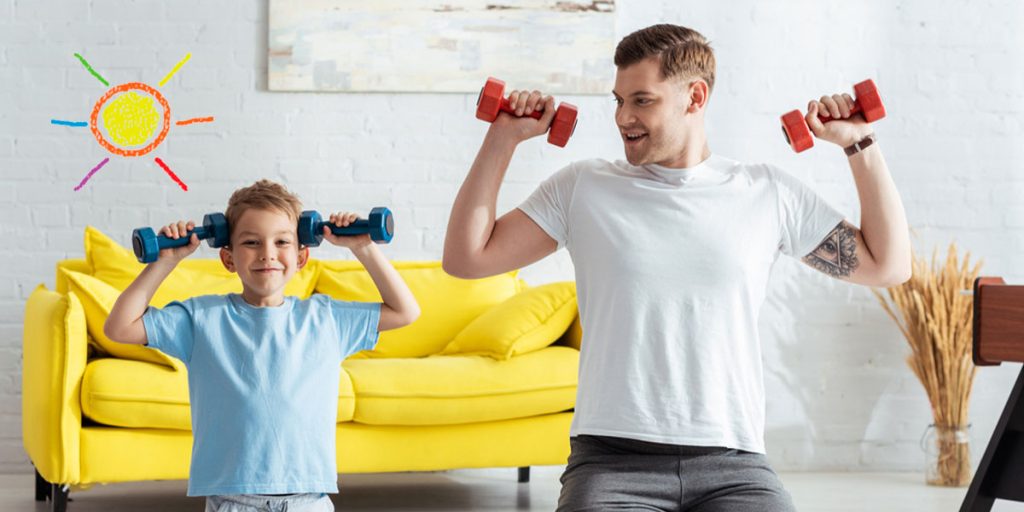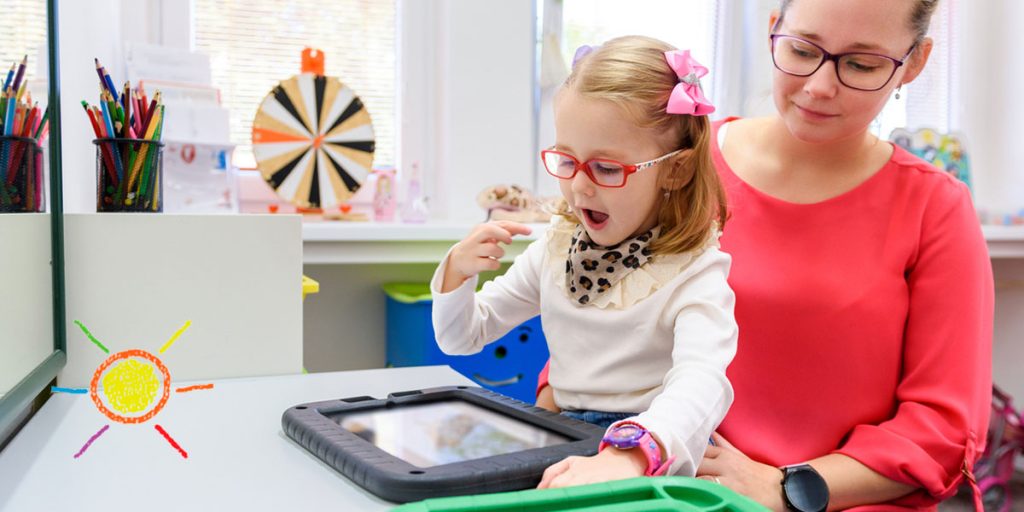Have you noticed that you feel better when you keep your body moving? Physical activity improves blood flow, strengthens your heart, and can help clear your mind. Another incredible benefit of exercise is reduced anxiety. Unlike many other treatments for anxiety, exercise has little to no negative side effects — it’s noninvasive and free.
Exercise is an incredible and fun way to help reduce anxiety naturally in all children, including those with autism. Physical activity also improves other skills like coordination and social confidence — and it can even improve sleep. Learn more about the benefits of physical activity for children with autism.
Builds Healthy Motor Skills
Autism and physical activity have an interesting relationship. Many kids with autism struggle with coordination and body awareness. They often reach physical milestones much later than other children and may have less muscle tone. Although researchers aren’t sure why this happens, delays in motor skills impact most children who are on the spectrum in some way.
The good news is that regular physical activity can help kids with autism improve their motor skills. According to a 2023 study, children on the spectrum who completed structured exercise for an hour three times a week showed significant improvement in motor skills when compared to kids who didn’t exercise in the study’s control group.
Here’s a quick list of physical activities that can help children with autism improve their gross motor skills:
- Running games like tag
- An active round of Simon Says
- Jumping jacks
- Throwing and catching balls
- Playing on a trampoline
Young children create their own exercise through play. From the ages of six to 17, the CDC recommends that children can benefit from a minimum of 60 minutes a day of moderate to intense physical activity. The maximum amount of exercise children should pursue depends on their individual preferences and abilities. Some kids thrive on extra physical activity, so pay attention and adjust as necessary.
Improves Social Relationships
Autism and exercise can also impact social relationships. Often, children with autism feel they don’t fit in with those around them. This can lead to withdrawal from social situations, including physical activities like group sports. Withdrawal and separation only make these feelings and behaviors worse. Joining a sports team is one way for kids with autism to reduce their social anxiety progressively.
Playing a sport gives children something to focus on outside of how they feel. It creates a sense of camaraderie within the group that can be very affirming for children who have typically felt like an outsider. Every teammate in the group will be in a vulnerable position — learning something new, making new connections and finding their place in the team.
Combining physical activity with social connection is special because it can help children with autism relax in what would usually be a stressful situation for them. During exercise, their brains will produce endorphins, or feel-good chemicals. This can help kids with autism connect social time with feeling happy, energized and confident. Over time, exercising with a group of friends can help change their perspective so they have more confidence going into other social situations as well.
If joining a sports team sounds like too much for your child, you can always start by easing them into it. Have them play group games with family or go to see kids’ sports events in your area. Plan ahead so the experience is fun while exposing them to a little bit of social stress. The key is to progressively build the child’s tolerance so they can feel confident enough to join a team and gain the social benefits of group exercise.
Heightens Cognitive Ability
New or difficult things can be stressful for any child. Regular exercise is one of the ways that neurodivergent kids can naturally balance their brain chemistry and reduce feelings of anxiety.
Exercise has been shown to reduce hyperactivity, calm stress and promote clearer thinking. It can help children with autism feel less overwhelmed by new experiences and sensory information. Autism is a condition of the brain, and exercise activity works to promote brain health. Because the brain can actually rewire itself, physical activity may have a positive cumulative effect over time for kids with autism.
The best results come from consistent physical movement on a daily basis. Small, regular exercise sessions are much more beneficial for kids with autism than sporadic but challenging physical activity. This activity should be something the child enjoys to have the most impact. Let them try several different things to see what the most optimal type of physical activity is for them.
Children can avoid the impact of chronic adult anxiety and improve their quality of life if they learn healthy exercise habits now. Research shows that exercise makes a huge difference in reducing anxiety for children both with and without autism. Kids who struggle with high anxiety can particularly benefit.
Enhances Good Sleep
Another one of the benefits of exercise for kids with autism is improved quality of sleep. A good night’s rest helps the body handle stress and anxiety during the day, so poor sleep can cause increased anxiety. The reverse is also true — people who experience high anxiety often don’t sleep well. This can create an unhealthy cycle that increases anxiety over time.
The benefits of exercise for sleep include the following:
- Exercise helps people fall asleep faster.
- They wake up fewer times during the night.
- The quality and length of their sleep improve.
- In the morning, they feel more refreshed.
People who don’t get enough sleep or good quality sleep often have elevated levels of cortisol during the day. This hormone is associated with stress and alertness. By exercising, kids with autism can improve their sleep and reduce this hormone. This can help them experience more peaceful waking hours.
Most children need to sleep for a solid 8-14 hours, depending on their age. Here are a few signs that your child isn’t getting enough sleep:
- Hyperactivity
- Trouble with attention and focus
- Moodiness
- Acting sleepy during the day
If you notice your child showing these signs, first ensure they have plenty of time for sleep. If quality rather than time is the issue, consider adding more physical activity into their day. Although it may seem counterintuitive, expending more energy can actually help people feel more rested.
Autism and Exercise Benefits — Find Support at MySpot Care
Would your child with autism benefit from support? At MySpot Care, our behavioral technicians, registered behavior technicians, and licensed board-certified behavior analysts use Applied Behavior Analysis (ABA) to support your child’s growth and development. Our providers target communication, motor skills and more, catering sessions to meet the individual needs of every child who works with us. Learn more about the services we offer today!


